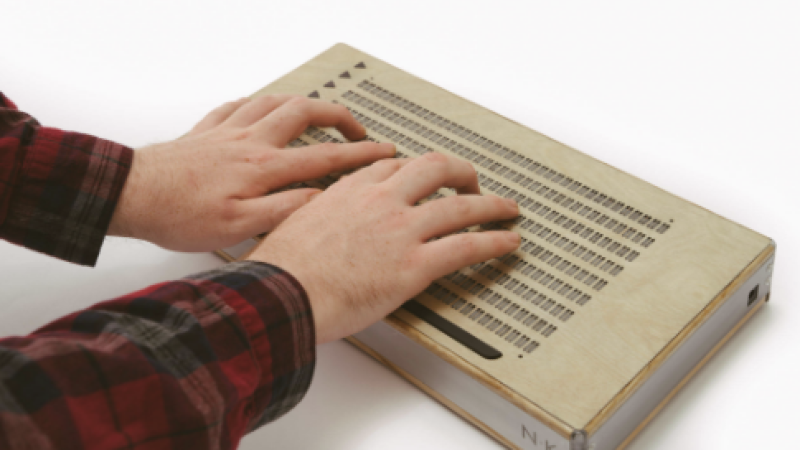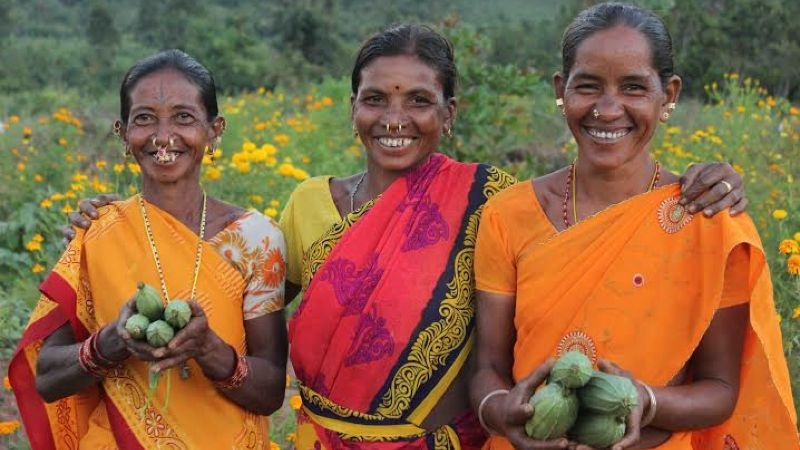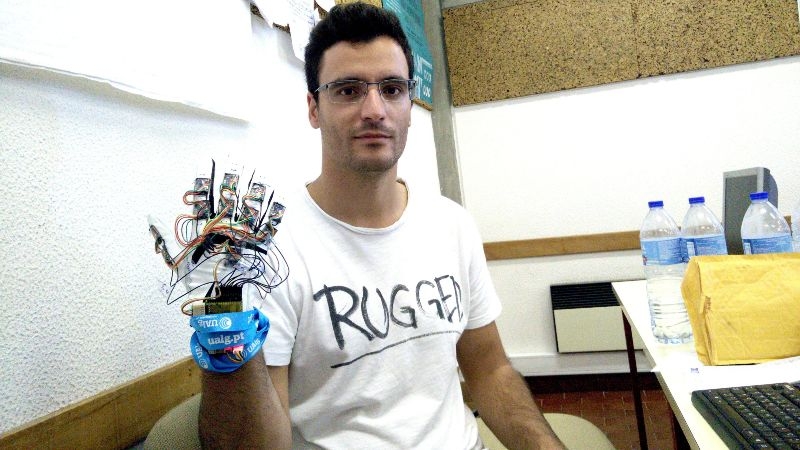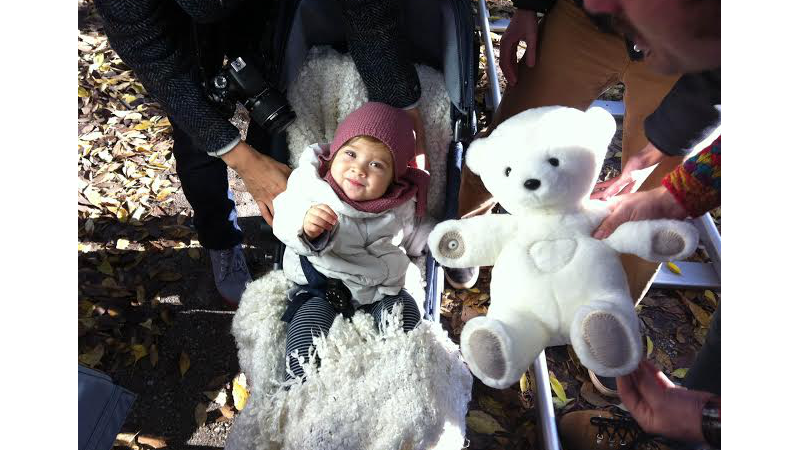However, tech still has the potential to be a force for good in the world. Here are some startups that are using technology to make a positive difference, from braille e-readers to drones that search the seas for environmental crimes. Read next: Who are the world’s most controversial tech CEOs and why?
Bayes Impact
Bayes Impact is an organisation with the vision of harnessing tech to help create citizen-led public services in partnership with government. This is in the face of the increasing takeover of public services by private enterprise, and the company states that citizen-led innovation is one way to counter this damaging trend. The vision involves a symbiotic relationship between citizens and government based on a few agreements: that the project be open, accessible and transparent, and conducted in accordance with the principles of public service. The government, on the other hand, must provide the required data, and facilitate the relationship between the project lead and the public institution the project relates to. Although based in France, the company has helped pioneer projects globally. Some of these include Bob, an app that the organisation claims has helped return 150,000 people to work in France, and in the US, a tool designed to allow police departments to collect and analyse ‘use of force’ data (behaviour that is currently reported federally by three percent of police departments across the country). This tool, URSUS, was developed in association with the CA Attorney General and Department of Justice and aimed at the 800 law enforcement agencies of California.
Social Tech Trust
UK-based organisation Social Tech Trust works to identify areas where technology could have a transformative effect on a social problem. They work with and support other organisations to bring these tech-inspired solutions to fruition. To date they’ve supported hundreds of tech-driven projects for social good including: Microsoft’s Global AI for Good initiative: Social Tech Trust is working to deliver an ‘AI for Good’ cohort for the Microsoft for Start-ups category. Vodafone Techstarter: Social Tech Trust developed this social innovation award programme in partnership with Vodafone’s charitable arm, the Vodafone Foundation. The programme aims to discover and help develop innovation in social tech. Fair by Design: Social Tech Trust invested £1 million in Fair by Design in 2017, a new fund which aims to raise up to £20m to end the poverty premium within 10 years.
Hoobox Robotics and Intel
Hoobox Robotics has developed a wheelchair that can be controlled by facial expressions. The Wheelie 7 uses Intel’s AI technologies to create the world’s first wheelchair powered by facial recognition technology. Users pick from ten gestures, including kisses, smiles, or raised eyebrows, which are captured by a 3D Intel RealSense Depth Camera SR300 mounted on the wheelchair and then analysed by AI algorithms process in real time that determine whether to move, stop or turn the chair.
Passenger Assist
Rail tech startup Transreport has developed an app called Passenger Assist that tracks disabled rail users in real-time as they travel on trains. Users create a user profile with their name, photo and special requirements, which is then sent to station staff, who are kept updated on the location of the passenger and notified there is a delay, change of platform or missed train. Both passengers and staff can also use the app to message each other. The app is currently being trialled by London Northwestern Railway, Greater Anglia, South Western Railway and West Midlands Railway ahead of a planned nationwide roll-out.
International Centre for Missing and Exploited Children
The International Centre for Missing and Exploited Children (ICMEC) has launched an AI-powered platform called GMCNgine that helps finds missing and abducted children.
MIT Media Lab and Facebook
Researchers from the MIT Media Lab and Facebook are using machine learning to give addresses to the estimated 4 billion people in the world lack a physical address and are thus deprived of access to deliveries, voting rights, medical care and other rights and services. MIT Technology Review reports that the researchers trained deep learning algorithms to extract road pixels from satellite images and connect the pixels together into a road network that is divided into different regions, streets and road numbers. The team now plans to put the system into practice in collaboration with nonprofit partners.
Rochester Institute of Technology
Researchers at Rochester Institute of Technology are building an automatic speech recognition application to preserve the endangered language of the Seneca Indian Nation. Robert Jimerson, a computing and information sciences doctoral student at RIT and member of the research team, had a personal motivation for the project as he’s a member of the Seneca Nation of Indians. He brought together tribal elders and close friends from the community to provide audio recordings of the language. The translations are converted into training data for deep learning models which can then automatically document and transcribe the language. “We use a process called transfer learning which starts with a model trained with readily available English speech to get the basic, initial training for the system, then we’ll re-train the neural networks and fine tune it toward the Seneca language,” said Ray Ptucha, assistant professor of computer engineering in RIT’s Kate Gleason College of Engineering. “We’re getting very good results.”
Iron Ox
An agritech startup called Iron Ox has responded to the pressure of food waste and a shortage of agricultural labour by creating the first farm in the US run entirely by robots. The Californian company claims that its hydroponic growing system uses 90 percent less water than traditional farming and grows 30 times the amount of crops per acre of land.
ATLAN Space
Moroccan startup ATLAN Space has developed AI-guided drones that can search the seas for environmental crimes. The system uses distributed deep learning technologies to verify whether boats in the oceans are acting as authorised, and to classify different species of marine life and identify every individual in the category. The autonomous network of aerial vehicles can then provide intelligence on illegal fishing and oil spills to intervention teams. In June 2018, the startup won $150,000 (£118,000) in the National Geographic Society’s Marine Protection Prize, which it will use to implement a pilot project to combat illegal fishing in the Seychelles.
Oxford VR
VR therapy produced by the University of Oxford spinout Oxford VR is being used to cure fear of heights. The programme offers personalised treatment in virtual environments with a computer-generated coach who users can interact with using voice recognition technology In a randomised control trial of the technology conducted by the University of Oxford’s Department of Psychiatry, participants wearing HTC Vive headsets were taken up a virtual ten-storey building and guided through a series of increasingly challenging tasks. Every one of them showed a reduction in fear of heights, at an average reduction of 68 percent. Their phobia was assessed again four weeks later through a follow-up questionnaire, which suggested that 69 percent of them had now lost their fear. “When VR is done properly, the experience triggers the same psychological and physiological reactions as real-life situations,” said Professor Daniel Freeman, who led the research team. “And that means that what people learn from the VR therapy can help them in the real world.”
Chatterbox
Chatterbox was created to find meaningful work for the underutilised talent of refugees. It does this by arranging language lessons taught by native speakers. The startup was founded in 2016 by Mursal Hedayat, a refugee from Afghanistan. Hedayat had fled the country as a three-year-old in 1994. She arrived in the UK with her mother, a civil engineer who spoke four languages but struggled to find work. Chatterbox helps refugees like her mother turn their talents into jobs. It provides a platform to find speakers and arrange classes online or in-person, with the support of technology including online booking and video classrooms. The startup has raised £15,000 in seed funding from Bethnal Green Ventures.
Bristol Braille Technology
Bristol Braille Technology has developed an e-reader for the blind known as Canute. The creators claim Canute is the world’s first multiline braille e-reader. Users can condense all of their braille library into the device. The device is designed to provide an affordable alternative to expensive paper braille. By spreading 360 characters across nine lines of Canute, it could be 20 times cheaper per cell than existing braille devices. Canute was built over over six years with the blind community. It’s currently undergoing final pre-production testing pilot ahead of a public launch. Non-equity assistance funding has been provided by the Pitch&Palace programme.
Spark Horizon
Spark Horizon is building the first free charging network for electric cars across Europe. The costs of operating the network are covered by brands, who have underwritten the network and installed it at popular locations at no cost in exchange for placing advertisements for their organisations on the chargers. The idea is to fill a growing gap in the market for electric vehicle users, 82 percent of whom say that there are enough public charging stations available. Spark Horizon was founded in 2016 and the next year was selected on the Kickstart Accelerator, an 11-week accelerator programme held in Switzerland.
PragmatIC
Cambridge-based PragmatIC Printing produces sticky microchips that can be put on packaging for consumer goods and other devices. The low-cost flexible electronics circuits are thinner than a human hair and flexible enough to be embedded in any surface to make them”smart objects”. The added intelligence can enhance the security of everything from bananas to banknotes, by digitally connecting the entire supply chain. Perhaps its most promising application is to reduce food waste in the developing world, where 30-40 percent of agricultural produce is wasted before it gets to market. PragmatIC chips can document the entire sourcing chain, from harvest to transport to sale to ensure everything is efficiently sold and consumed. The startup was announced the overall winner of the inaugural Future Planet Awards in May 2017 by a prestigious judging panel headed up by Lord Norman Foster. The award recognises companies commercialising cutting-edge technology or research to address global challenges in climate change, health, education, sustainable growth or security.
Congenica
Cambridge-based Congenica is a clinical genome diagnostics company that analyses DNA samples to rapidly diagnose rare diseases. The process can reduce months into hours by replacing the diagnosis done by doctors with an automated comparison of an individual’s DNA against recorded disease patterns. The company developed from research at the Sanger Institute in the Wellcome Genome Campus in Cambridge. The research resulted in a genomic analytics platform called Sapientia that can interpret genetic diseases. Congenica has raised a total of $14.77m (£11.5m) in four separate funding rounds since it was founded in 2012.
Immersive Rehab
London-based Immersive Rehab launched in 2016. It creates physical rehabilitation exercises in virtual reality that improves patient recovery and increases the effectiveness of physical and neuro-rehabilitation. Founded by Dr Isabel Van De Keere, Immersive Rehab has been supported by the European Regional Development Fund and will start clinical trials with Charing Cross Hospital and Imperial College London in 2018.
Andiamo
UK company Andiamo uses 3D scanning and printing to create affordable orthotics (external braces for the spine or limbs) for young people. 3D printing reduces the manufacturing time from 13 weeks to just one week, revolutionising healthcare for disabled children.
Dot Watch
Dot is the first ever Braille smartwatch. This first-of-its-kind smartwatch uses magnets and a collection of pins, which can be raised or lowered to communicate text messages, display who is calling and perform other smartwatch functionality, by providing four Braille letters at a time.
Pips
Created by Nominet researcher David Simpson, Pips uses the internet of things to help partially sighted children navigate the world around them. Pips features buttons which can be placed around the home, on walls and on furniture in a particular sequence. Once the first button in the sequence is pressed by the child, it will light up and make noise, encouraging them to go to the next button. This will help the partially sighted child navigate around household items and is ideal for stairs.
AARM
After Japan’s Fukushima Daiichi nuclear power plant was disturbed by an earthquake in 2011, six reactor cores went into meltdown resulting in 100,000 people being evacuated from the area. Authorities struggled to determine whether areas surrounding the plant were safe as its monitoring stations were also displaced during the quake. AARM uses drones to assess areas of potential danger without harming anyone. Each drone is equipped with radiation mapping capabilities to send back information on the disaster area.
NightWare
Both common and devastating, PTSD impacts countless people in the UK and across the world, from firefighters and victims of violent crime to those serving in the armed forces. NightWare is a smartwatch app that aims to help those suffering from PTSD get to sleep. The app’s creator, Tyler Skluzacek, saw his father battle PTSD after returning from the Iraq war and decided to create an app that will map your sleep and determine what type of sleep you’re having. The app will monitor your sleep and after a 10 to 14 day period, it will map night terrors so that next time you have a night terror, it will trigger the watch to buzz, ultimately taking you out of the night terror while making sure you’re still asleep.
MOM
Every year almost one million babies born prematurely do not survive their first few months. They face a particularly difficult fight in the developing world. MOM, a portable, collapsible, inflatable incubator, hopes to help. It runs on very little power and can use solar energy or even car batteries. It costs £250 compared to the £30,000 industry norm. MOM’s founder James Roberts claims it could help save 75 percent of premature babies.
Flood Network
Flood Network is the UK’s largest network of flood sensors. It uses smart data to create low cost flood monitoring and warning systems. Based in Oxford, Flood Network has a live stream showing water levels and when floods are expected as well as sending alerts to you or your community. The technology is powered by battery and can connect wirelessly to a gateway showing the data on your map. The live stream only covers Oxford and surrounding areas with plans to develop its network. Data is recorded in the Flood Network’s system and can be viewed on the site’s flood archive.
Digital Green
India-based global not-for-profit Digital Green allows rural communities across South Asia and sub-Saharan Africa to share locally successful projects via video to encourage wider adoption. The organisation trains people in how to record and display 8-10 minute videos, which are shared on Digital Green’s social network ‘FarmerBook’.
Instant Detect
A camera trap conservation system that monitors wildlife, connected via satellite imagery and active in Kenya and Antarctica. It helps to tackle poaching of endangered species by providing an early warning system for rangers.
SMS in Somalia
Oxfam and UNICEF plus local partner Hijra worked together to combat an ‘explosive’ outbreak of polio in Somalia in May 2013. The disease was spread thanks to a lack of immunisation in remote areas, poor hygiene and population movements caused by political instability. As face-to-face intervention was providing difficult, the partners set up a mobile phone-based service to improve polio awareness, provide healthcare advice and send out vouchers for soap and clean water. It reached 104,358 people with a completion rate of 86 percent. The last polio case in Somalia was in August 2014.
Open Bionics
As bionic limbs can cost up to £80,000, many of the estimated two million hand amputees worldwide must make do without a working prosthesis. UK-based firm Open Bionics has developed a much more affordable bionic hand – cheaper because it is 3D-printed using thermoplastic elastomer, a flexible plastic. It is tailor-made and printed in a matter of days, compared to the usual waiting time of up to three months.
Project Loon
Scientists at Google have come up with an idea to help deliver internet connectivity to the 60 percent of the global population that still lack it: balloons. Project Loon, a Google X Moonshot Factory initiative, is developing a system of large air balloons that can float in the stratosphere 20 km above the Earth. The balloons form a wireless network that people on the ground can connect to in much the same way as they would a cell tower, and each balloon can provide internet to a 40 km diameter area.
GyroGlove
Hand tremors are a symptom affecting up to 200 million people globally, caused by conditions like Parkinson’s disease. Those afflicted can suffer a diminished quality of life and are often reliant on help from others to perform even simple tasks. In a bid to help, a group of Imperial College students have developed GyroGlove – which uses gyroscopes to reduce tremors. In testing it has reduced tremors by up to 80 percent.
OmniDynamics
Bristol-based OmniDynamics uses robotics and 3D printing to reduce plastic waste. Its product ‘Strooder’ recycles plastic waste turning it into a filament for 3D printers. It is used by schools, universities and businesses and gives users the chance to reuse materials such as polypropylene which is not typically recycled. Strooder works by loading its hopper with pelletised raw or recycled plastic which is then melted to form a filament. It’s easy to use with customers selecting the material and colour of the 3D print, while Strooder does the rest. Launched in 2013, OmniDynamics raised over £60,000 through its Kickstarter Campaign exceeding its goal of £20,000.
U-Report
UNICEF set out to give young people a platform to have their opinions heard and came up with U-Report, a messaging platform that engages young people in political debate and carries out polls on issues of importance to them. It was originally piloted in Uganda, where 55 percent of the population is 18 years old or younger, and 48 percent of people have access to mobile phones. The service offers them information and asks for their views on topics such as education, water, sanitation and hygiene, youth unemployment, HIV/AIDS and disease outbreaks.
Wikihouse
Wikihouse is an open source project that allows anyone to design and build houses cheaply using blueprints downloaded from the internet. It was used in New Zealand after the 2011 earthquake, is being trialled in Brazil and China and is being considered by aid agencies for disaster relief.
Peek
Peek, is a portable eye examination app for professional eye exams from a smartphone. The kit features a clip-on camera adapter that gives high quality images of the back of the eye and retina. The team have partnered with Médecins Sans Frontières and the International Agency for the Prevention of Blindness to help prevent the estimated 5.6 million avoidable cases of blindness globally every year.
‘Teddy the Guardian’
‘Teddy the Guardian’ is a teddy bear with embedded sensors that measure a child’s heart rate, oxygen and body temperature when its paw is squeezed. That data is then captured and transmitted in real time to a mobile app where it can be analysed and downloaded by medical staff and parents.
HarassMap
HarassMap is a tool allowing those assaulted or harassed in Egypt to anonymously report their experiences. Reports are plotted on a Google-style map with each report appearing as a red dot. When you click on the dot, the full text of the report is displayed. The developers hope that providing a view of the reality and scope of sexual harassment and sexual assault in Egypt will help to end its social acceptability.
Gravity Light
Gravity Light is a device that generates light from gravity. It takes three seconds to light the weight, which powers 25 minutes of light on its descent. The product is pitched as an alternative to burning dangerous and expensive kerosene lamps in the developing world.
Mobile skin analytics
Skin analytics is a smartphone attachment that allows you to use your mobile phone to photograph, measure and diagnose skin moles to check for risk of melanoma. The company, based in Cambridge, was set up by two MBA students at London Business School and launched in 2011.
SpeakSet
SpeakSet, which calls itself ‘Skype for the over 65s’, allows older people to make video calls to their family, carers or doctors from a TV, laptop or computer. It is used by NHS clinical commissioning groups, charities, care homes and GPs and aims to improve the quality of care, reduce isolation and cut readmission rates.




































